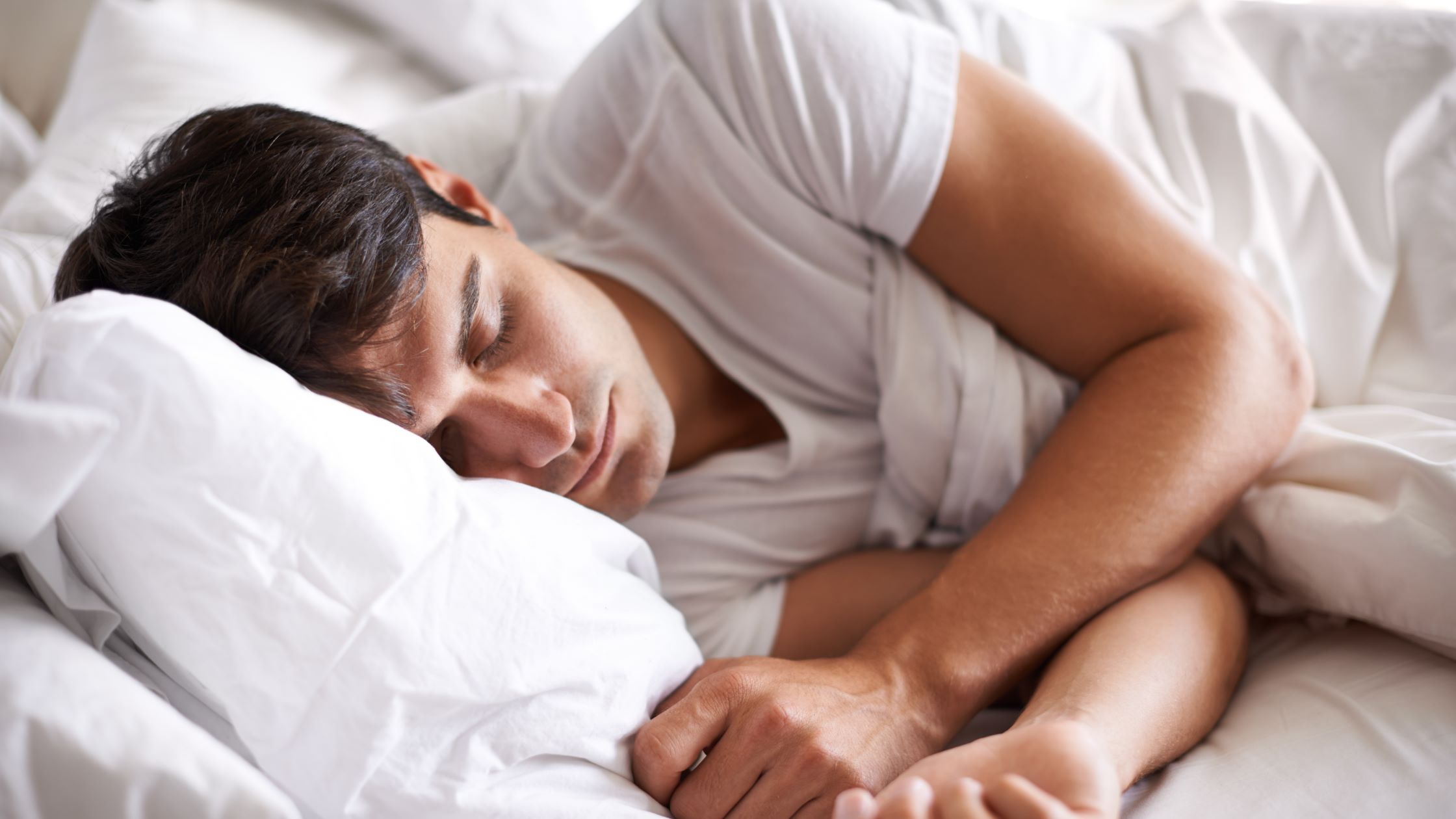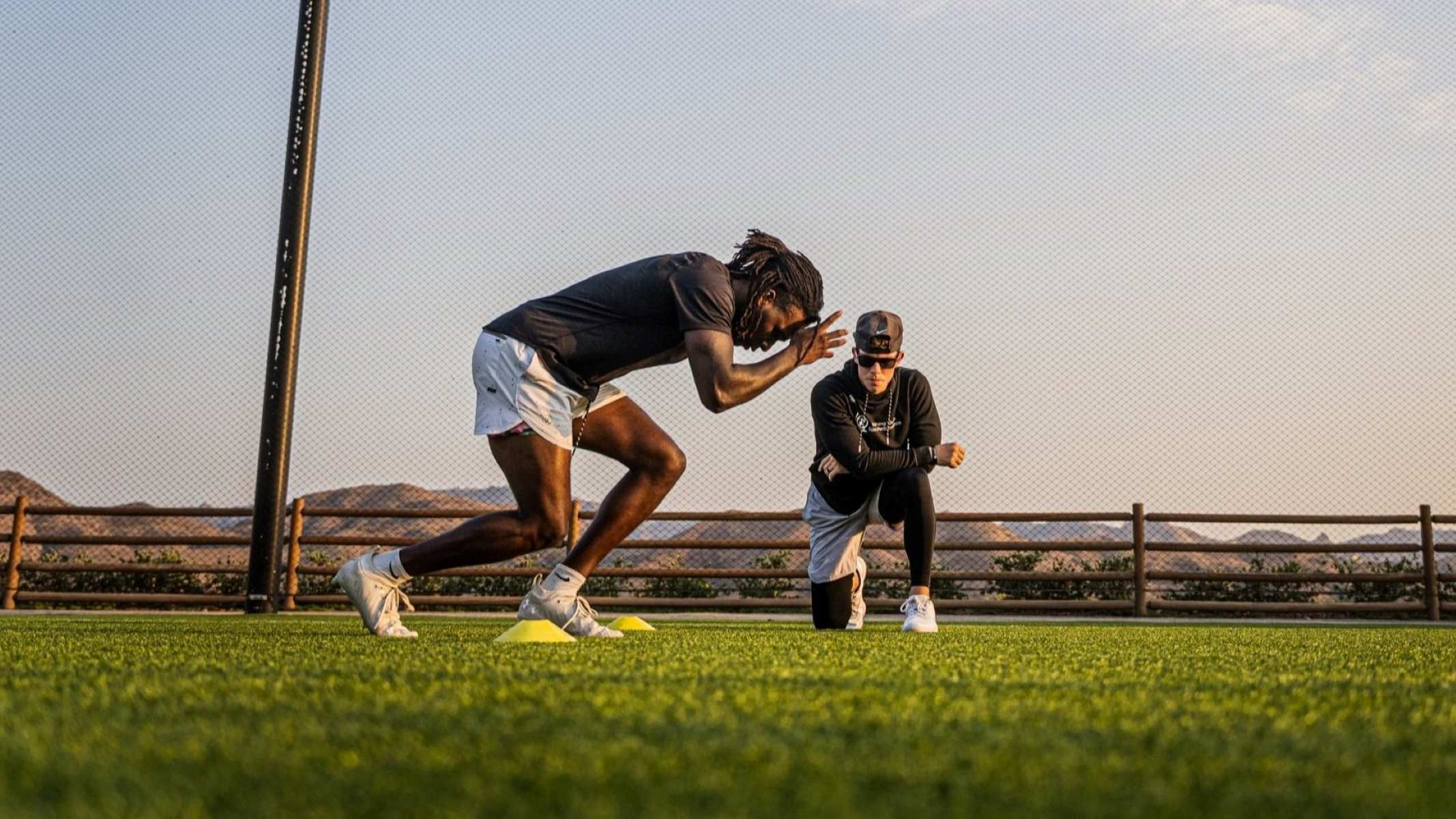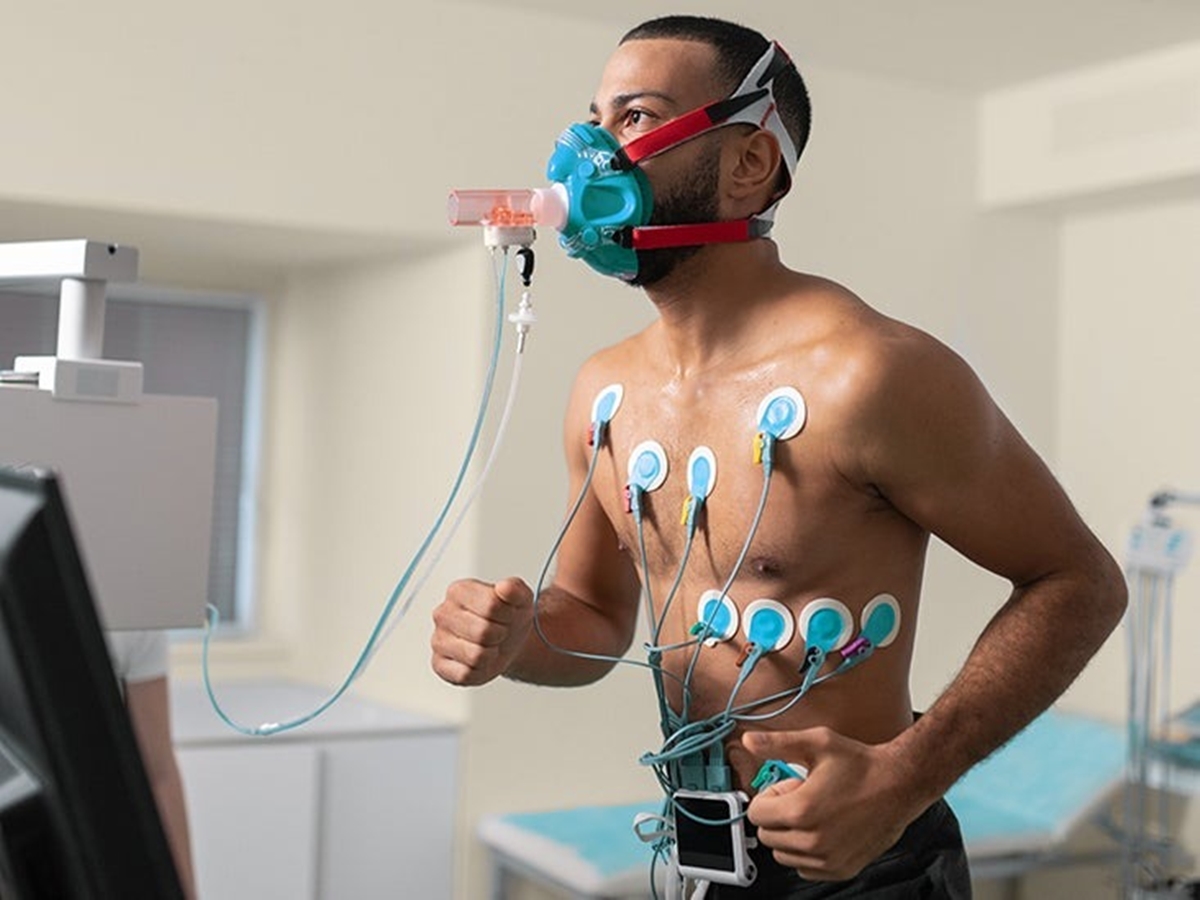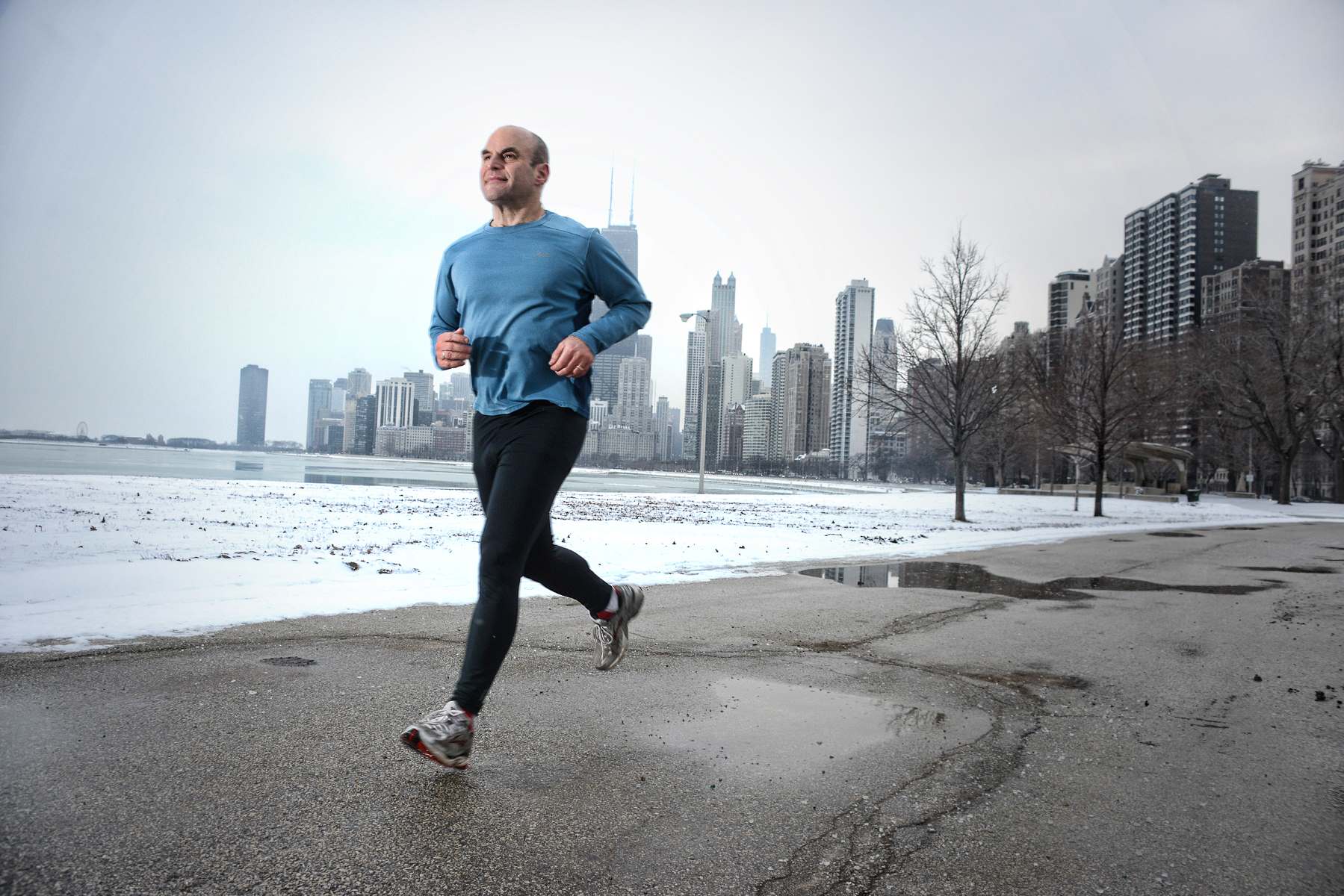Home>Misc>Featured>How Does Sleep Impact Athletic Performance


Featured
How Does Sleep Impact Athletic Performance
Modified: August 21, 2023
Discover the powerful impact of sleep on athletic performance. Dive into our featured article to uncover how quality sleep can enhance your sports performance and recovery.
Introduction
Athletic performance is influenced by various factors, including physical training, nutrition, and mental focus. However, one crucial aspect that is often overlooked is sleep. Sleep plays a vital role in the overall health and well-being of athletes, impacting their physical and cognitive abilities.
While athletes typically focus on training and performance, they may neglect the importance of getting enough quality sleep. In a highly competitive sports world, athletes often follow rigorous training schedules, travel extensively, and face immense pressure to excel. As a result, their sleep patterns can be disrupted and compromised.
Optimal sleep is essential for recovery, energy levels, focus, and overall performance. Research has shown that inadequate or poor-quality sleep can have detrimental effects on an athlete’s physical and cognitive abilities, increasing the risk of injury and impairing performance.
In this article, we will explore the impact of sleep on athletic performance, the consequences of sleep deprivation, and provide recommendations for improving sleep quality and quantity. By understanding the importance of sleep and implementing strategies to optimize it, athletes can enhance their performance on and off the field.
The Importance of Sleep for Athletes
Sleep is a vital component of an athlete’s training regimen and overall well-being. It plays a significant role in several key areas that directly impact athletic performance.
Firstly, sleep is essential for physical recovery. During sleep, the body undergoes crucial processes to repair and regenerate tissues, replenish energy stores, and restore hormone balance. Adequate sleep allows muscles to recover and adapt to the stress placed on them during training, leading to improved strength, endurance, and overall performance.
Moreover, sleep is closely linked to mental and cognitive function. While asleep, the brain consolidates memories, processes information, and regulates emotions. Sufficient sleep enhances cognitive abilities such as decision-making, reaction time, and problem-solving, all of which are essential in sports performance. Athletes who consistently get enough sleep can maintain mental clarity and focus, enabling them to make split-second decisions and execute complex movements with precision.
Sleep also plays a crucial role in regulating the body’s immune system. During sleep, the immune system releases cytokines, which help fight off infections and inflammation. Athletes who are sleep-deprived may have a compromised immune system, making them more susceptible to illnesses and longer recovery times from injuries.
Additionally, sleep is linked to mood and emotional well-being. Lack of sleep can lead to increased irritability, mood swings, and a decline in overall mental health. Athletes who do not get sufficient sleep may experience higher levels of stress and anxiety, which can negatively impact their performance and motivation.
Overall, the importance of sleep for athletes cannot be overstated. It is a fundamental pillar for physical recovery, mental sharpness, immune function, and emotional well-being. By prioritizing sleep as part of their training routine, athletes can maximize their potential, and excel in their respective sports.
Sleep and Physical Performance
Sleep plays a crucial role in enhancing physical performance for athletes. It directly impacts various aspects of their athletic abilities, including strength, speed, agility, and endurance.
One key area influenced by sleep is muscular strength and recovery. During sleep, the body produces growth hormone, which is essential for muscle repair and growth. Sufficient sleep allows the muscles to recover from intense training sessions and adapt to the stress placed on them, leading to increased strength and power output.
Furthermore, sleep is closely tied to athletic speed and agility. Research has shown that sleep deprivation can negatively impact reaction time, coordination, and motor skills, all of which are critical for quick and precise movements in sports. Athletes who do not get enough sleep may experience sluggishness, decreased agility, and impaired performance.
Sleep also has a direct influence on endurance and cardiovascular fitness. Studies have found that sleep deprivation can lead to decreased aerobic capacity and increased perceived effort during exercise. Athletes who lack adequate sleep may experience reduced endurance and struggle to maintain peak performance for prolonged periods.
Moreover, adequate sleep is essential for injury prevention. During sleep, the body goes through processes to repair and strengthen tendons, ligaments, and bones. Sleep deprivation can impair these recovery processes, leaving athletes more susceptible to injuries. Lack of sleep can also lead to impaired balance and coordination, increasing the risk of accidents and falls during physical activity.
To maximize physical performance, athletes should prioritize high-quality sleep as part of their training regimen. Establishing consistent sleep patterns and creating a sleep-friendly environment can help optimize sleep duration and quality. Additionally, incorporating strategies such as pre-sleep routines, relaxation techniques, and minimizing electronic device usage before bed can contribute to better sleep and ultimately enhance physical performance.
Sleep Deprivation and Athletic Performance
Sleep deprivation, or consistently not getting enough sleep, can have a detrimental impact on athletic performance. It impairs various physical and cognitive functions, ultimately hindering an athlete’s ability to perform at their best.
One of the immediate effects of sleep deprivation is decreased energy levels and overall fatigue. Athletes who are sleep-deprived may experience reduced motivation and stamina, making it difficult to sustain high-intensity efforts during training or competition.
Sleep deprivation also negatively affects reaction time and coordination. Studies have shown that even a single night of inadequate sleep can impair an athlete’s ability to react quickly and accurately. This can lead to poor decision-making, decreased accuracy, and an increased risk of injury.
Furthermore, sleep deprivation disrupts the body’s ability to regulate hormones, particularly those related to appetite and metabolism. Lack of sleep can lead to increased hunger, cravings, and a higher likelihood of making poor dietary choices. This can have a detrimental impact on an athlete’s body composition, energy levels, and overall performance.
Cognitive function is also deeply affected by sleep deprivation. Lack of sleep impairs memory, attention, and concentration, making it challenging for athletes to absorb and process information quickly. This can be particularly detrimental in sports that require strategic thinking and quick decision-making.
Additionally, sleep deprivation compromises the immune system. Sleep is crucial for the body to repair and regenerate, and inadequate sleep weakens the immune system, making athletes more susceptible to illnesses and infections. This can result in missed training sessions and prolonged recovery periods, hindering overall performance.
In summary, sleep deprivation has far-reaching consequences for athletes. It impairs energy levels, reaction time, cognitive function, and immune system resilience. To ensure optimal athletic performance, athletes must prioritize sleep and take steps to establish consistent and quality sleep patterns.
Sleep and Cognitive Function
Sleep plays a crucial role in maintaining optimal cognitive function for athletes. It affects various aspects of cognitive performance, including attention, memory, decision-making, and problem-solving abilities.
One of the key cognitive functions influenced by sleep is attention. Adequate sleep allows for sustained attention, enabling athletes to stay focused on their tasks and goals. On the other hand, sleep deprivation can lead to decreased attention span, reduced concentration, and difficulty staying engaged during training or competition.
Sleep is also essential for memory consolidation. During sleep, the brain processes and stores information acquired throughout the day, facilitating optimal retention and recall. Athletes who get sufficient sleep can better retain and retrieve important skills, tactics, and strategies, giving them a competitive edge.
Furthermore, sleep plays a vital role in decision-making and problem-solving abilities. Research has shown that sleep deprivation impairs executive function, inhibiting an athlete’s ability to think critically, make accurate judgments, and adapt to changing situations on the field. Sleep-deprived athletes may struggle to make quick and rational decisions, leading to poor performance or missed opportunities.
Sleep also influences creative thinking and innovation. During sleep, the brain forms connections and processes information in unique ways, fostering creativity and novel ideas. Athletes who prioritize sleep can tap into this creative potential, enabling them to approach their sport with fresh perspectives and develop innovative strategies.
Moreover, sleep enhances overall mood and emotional regulation. Lack of sleep can lead to increased irritability, mood swings, and heightened emotional reactivity. Athletes who are sleep-deprived may struggle to manage stress and maintain an optimal mindset, impacting their overall cognitive functioning and performance.
It is clear that sleep is vital for cognitive function in athletes. Prioritizing sleep and ensuring sufficient sleep duration and quality can enhance attention, memory, decision-making, problem-solving, and creativity. By optimizing cognitive function through adequate sleep, athletes can elevate their performance and excel in their respective sports.
Sleep and Injury Risk
Sleep plays a critical role in preventing injuries among athletes. Inadequate sleep and sleep deprivation can significantly increase the risk of both acute and chronic injuries.
One of the main ways sleep impacts injury risk is through its effect on reaction time and coordination. Lack of sleep impairs an athlete’s ability to react quickly and accurately to stimuli, increasing the likelihood of accidents or biomechanical errors during training or competition. This can result in sprains, strains, or more severe injuries.
Sleep deprivation also compromises balance and proprioception, the body’s ability to sense its position and movements. Athletes who are sleep-deprived may experience impaired proprioception, making them more prone to falls and injuries, especially in sports that involve quick changes in direction or balance.
Furthermore, sleep is crucial for the body’s recovery and repair processes. During sleep, the body releases growth hormone and repairs damaged tissues, including muscles, tendons, and ligaments. Inadequate sleep can hinder this recovery process, leaving athletes more susceptible to overuse injuries, such as tendonitis or stress fractures.
Sleep deprivation also weakens the immune system, making athletes more susceptible to illnesses, infections, and longer recovery times. When the body is fighting off an illness, the risk of sustaining an injury increases due to weakened physical condition and reduced focus and concentration.
Additionally, sleep deprivation can lead to mental fatigue and decreased cognitive function. Athletes who are mentally fatigued may have reduced attention, decision-making abilities, and reaction time, increasing the likelihood of making mistakes or poor judgments that can result in injuries.
To reduce injury risk, athletes should prioritize sufficient and quality sleep. Establishing a consistent sleep routine, creating a sleep-friendly environment, and practicing relaxation techniques can contribute to improved sleep duration and quality. By ensuring proper recovery and minimizing the likelihood of accidents, athletes can stay in the game and perform optimally.
Recommendations for Sleep Quality and Quantity
To optimize sleep quality and quantity, athletes can implement several strategies and habits to ensure they get the rest they need for peak performance.
1. Establish a Consistent Sleep Schedule: Aim to go to bed and wake up at the same time each day, even on weekends. This helps regulate your body’s internal clock and promotes better sleep.
2. Create a Sleep-Friendly Environment: Make your sleeping environment conducive to sleep by keeping the room cool, dark, and quiet. Use comfortable bedding and ensure proper ventilation.
3. Wind Down and Establish a Bedtime Routine: Create a relaxing routine before bed to signal to your body that it’s time to sleep. This can include activities like reading, listening to calming music, or practicing relaxation techniques.
4. Limit Stimulants and Electronic Device Use: Avoid consuming caffeine or other stimulants close to bedtime as they can interfere with sleep. Additionally, minimize exposure to electronic devices with blue light, such as smartphones and tablets, at least an hour before bed.
5. Create a Sleep-Conducive Bedroom: Ensure your bedroom is free from distractions and promotes a sense of calm. Remove electronic devices, minimize clutter, and consider using blackout curtains or white noise machines if necessary.
6. Prioritize Regular Exercise: Engage in regular physical activity, as it can improve sleep quality. However, avoid vigorous exercise too close to bedtime, as it may interfere with the ability to fall asleep.
7. Watch Your Eating and Drinking Habits: Avoid heavy meals, spicy foods, and excessive fluid intake close to bedtime. While it’s important to stay hydrated, reducing liquid intake a few hours before sleep can minimize the need for bathroom breaks during the night.
8. Manage Stress Levels: Develop stress management techniques such as mindfulness, meditation, or deep breathing exercises. Prioritizing relaxation and finding healthy outlets for stress can promote better sleep quality.
9. Seek Professional Help if Needed: If you consistently struggle with sleep issues, consider seeking guidance from a sleep specialist or medical professional who can provide personalized advice and solutions.
10. Listen to Your Body: Pay attention to how your body responds to different sleep habits and adjust accordingly. Everyone’s sleep needs are unique, so be mindful of finding what works best for you.
By implementing these recommendations, athletes can improve sleep quality and quantity, ultimately enhancing their overall performance, recovery, and well-being.
Conclusion
Sleep is a crucial component of athletic performance and overall well-being. The impact of sleep on athletes cannot be overstated. It plays a vital role in physical recovery, cognitive function, injury prevention, and overall athletic performance.
Adequate sleep allows for optimal physical recovery, boosting strength, speed, agility, and endurance. It supports cognitive functions like attention, memory, decision-making, and problem-solving, enabling athletes to perform at their best mentally. Consistent and high-quality sleep also reduces the risk of injuries by improving reaction time, coordination, and balance. It strengthens the immune system and promotes overall mood and emotional well-being.
To optimize sleep, athletes should establish consistent sleep schedules, create sleep-friendly environments, and develop relaxing bedtime routines. They should also limit stimulants and electronic device use, prioritize regular exercise, manage stress levels, and pay attention to their eating and drinking habits. Seeking professional help when needed is also important for those facing persistent sleep issues.
By prioritizing sufficient and quality sleep, athletes can optimize their physical and cognitive abilities, reduce the risk of injuries, and reach their full potential in their respective sports. Sleep is not just an afterthought—it is an essential pillar of overall athletic performance and well-being. So, get the rest you need, and watch your performance soar!








